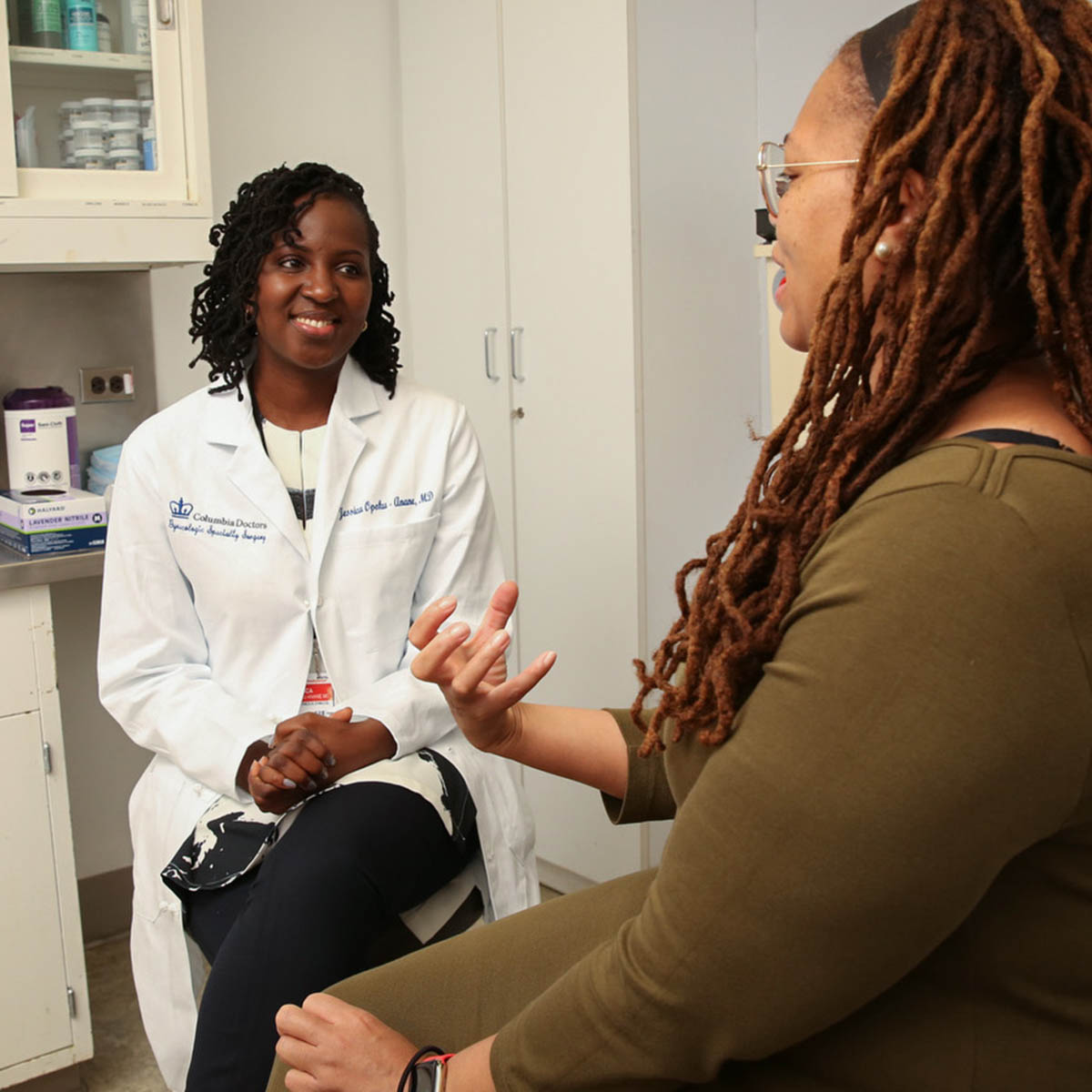GYNECOLOGIC SURGERY
New approach to treating endometriosis
ndometriosis is a relatively common condition that can cause severe pain and discomfort, and even inhibit everyday activities for those who suffer from it. In order to expand and enhance our endometriosis care to more patients and advance our innovative clinical research in this field, Jessica Opoku-Anane, MD, MS, a leader in treatment of endometriosis, joined our Division of Minimally Invasive Gynecologic Surgery this year. Dr. Opoku-Anane will establish a Comprehensive Endometriosis Center and will serve as director.
Our new endometriosis center will focus on treating the whole patient, including all of the physical, mental, and emotional complications that can arise from endometriosis, expanding the breadth of services offered. Our holistic and individualized approach involves coordination with our gynecologic specialty surgery experts as well as specialists from across the medical center, including fertility, radiology, general gynecologic care, pain management, pediatric and adolescent gynecology, urogynecology, integrated medicine, and mental health and wellness.

For many patients with endometriosis, the road to receiving a diagnosis and treatment can be a long one. It can take upwards of 10 to 11 years for patients to receive a diagnosis, although they may have been experiencing pelvic pain and other symptoms throughout that time.
Endometriosis has long been viewed as a disorder that primarily affects White women, but closer study has called these assumptions into question. Endometriosis patients overall are generally underserved and inadequately treated. Black patients and other people of color, however, face higher barriers to receiving appropriate treatment, often owing to systemic inequities.
Dr. Opoku-Anane, an advocate for health equity and Co-Director of the Office of Diversity, Equity, and Inclusion in the Department of Ob/Gyn, will work alongside the department to do outreach and education among underserved populations in New York City through engaging community organizations and digital outreach.
“Recent events over the last two years have really highlighted things that impoverished communities and people of color already knew,” Dr. Opoku-Anane said. “There are inequities in our system and it’s pervasive throughout our medical system and around the country. Sometimes providing equity means including things that are going to get our patients of color and lower-income to the same level as everybody else. We include programming and outreach that are targeted to our least-served patients. We do more phone calls and check-ups on referrals for patients who we know have a harder time accessing our services. We don’t want anyone to fall through the cracks.”
